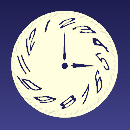

Note: the four patient representatives on the U.S. NIH Sleep Disorders Research Advisory Board (SDRAB) all felt that there was insufficient attention paid to sleep disorders, as opposed to sleep generally, in the Sleep Disorders Research Plan being developed by NIH with SDRAB input. Each of them spoke in support of greater emphasis on disorders. Below is the presentation by Susan Plawsky, representing the circadian rhythm sleep disorders community.
After the patient representatives joined this board, we consulted our respective sleep-disordered communities about needed research and we presented their high-priority research needs.
Now, a couple of years later, those needs have seemingly gone by the wayside. Instead, the most recent outline of the 2018 Sleep Disorders Research Plan omits even the general category of sleep and circadian rhythm disorders. The Plan's "overarching goal"—"Promote sleep and circadian scientific advances with high translational value to strengthen health-care, well-being, and safety"—omits the word "disorder." Under the "overarching goal" there are general references to "clinical interventions" and "patient-centered strategies." But the word "disorder" does not appear once.
According to its charter, the Sleep Disorders Research Advisory Board is charged with developing "long range plans . . . concerning . . . research programs on the nature, causes, diagnosis, treatment, and prevention of sleep disorders."
According to its mission statement, the National Center on Sleep Disorders Research exists to "conduct and support . . . research . . . and other activities with respect to sleep disorders."
Therefore, omitting sleep and circadian rhythm disorders from the Plan appears to violate the mission of the National Center on Sleep Disorders Research and the charter of the Sleep Disorders Research Advisory Board.
True, the Plan does not discourage any research on sleep and circadian disorders. But lack of discouragement does not equal encouragement. All research priorities explicitly noted in the Plan are explicitly encouraged. Anything not explicitly noted in the Plan is not explicitly encouraged.
This is a crucial point. The National Center on Sleep Disorders Research consults the Sleep Disorders Research Plan when issuing funding opportunities and organizing workshops. Therefore, anything not explicitly noted in the Plan presumably does not generate a funding opportunity.
Patient communities have been advised to fund their own research. We've been told to sponsor and organize workshops to attract and interest researchers. How? In general, we're very sick, very tired, underemployed, and unemployed. Collectively, we're poor. We don't have the wherewithal to be movers and shakers. We certainly don't have the money.
Patient communities have been advised to raise money from parents; after all, most parents will do anything for their kids. But many parents—and spouses, and relatives, and friends, and employers—don't believe our disorders exist. In the case of circadian rhythm disorders, for example, society views late sleepers as lazy and undisciplined; we could fix ourselves, if we really wanted to. I mean, who's heard of broken body clocks?
That's why the U.S. government is our first and last best hope for research on sleep and circadian disorders. Not only research on genomes, molecules, and healthy human subjects; not only research on the effects of sleep and circadian rhythms on diseases—but also research on human subjects with sleep and circadian disorders; research on treatments; and research that can help suffering patients ASAP, not in 20 years.
On behalf of the tens of millions of Americans with sleep and circadian disorders, the patient representatives request that the 2018 Sleep Disorders Research Plan include the high-priority research needs we've presented to this board. We'd be happy to delineate them again, if that's helpful.
Thank you to everyone here, and to everyone participating virtually.